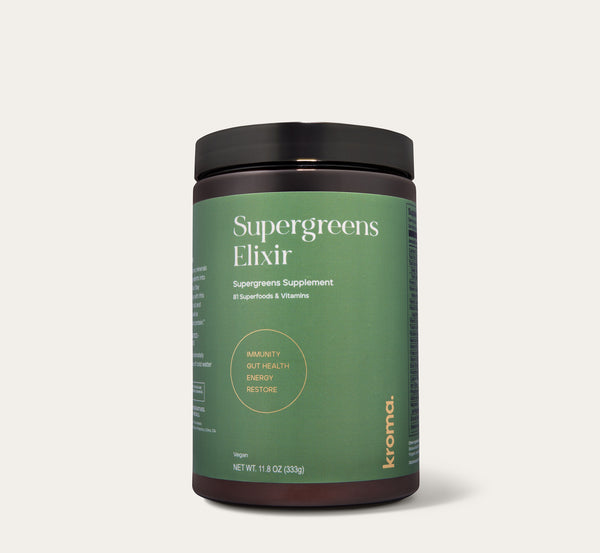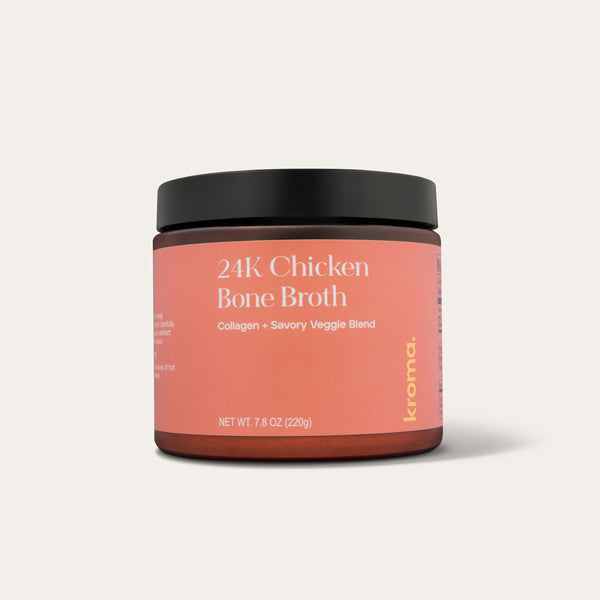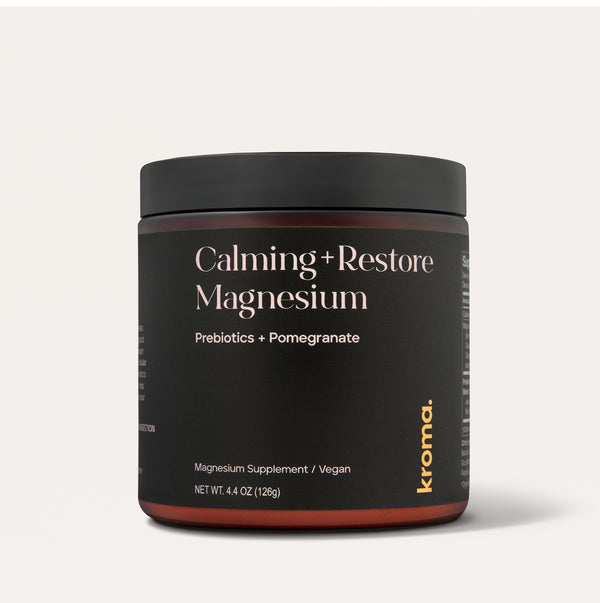Menopause is surrounded by myths, leaving many women feeling unprepared and resigned to “just deal with” the changes. The truth is, menopause is a natural life phase that you don’t have to suffer through - in fact, it can be empowering and even transformative. With some informed adjustments to your diet and lifestyle—even as early as your 20s and 30s—you can reduce many common symptoms.
Let’s start at the beginning, with the basic understanding of what Menopause is. Menopause marks the end of a woman’s reproductive years, bringing changes in estrogen and progesterone that affect not only reproductive health but also mood, metabolism, and overall vitality. Lower estrogen levels often lead to symptoms like hot flashes, mood swings, weight gain, and changes in libido. “When women are informed about what’s happening to their bodies, they can make better choices that lead to improved quality of life,” says Dr. Rocio Salas-Whalen, an endocrinologist who champions informed wellness.
Let’s explore what’s really happening with your body during menopause and how you can embrace this transition with ease.
Weight Gain: Understanding the Shift

Weight gain is a frequent concern during menopause, and it's largely linked to both hormonal changes and shifts in metabolism. Estrogen, which plays a key role in regulating body fat distribution, decreases significantly during menopause, causing the body to shift fat storage from the hips and thighs to the abdomen. This visceral fat, stored around the internal organs, is metabolically active and can impact cardiovascular health, increasing the risk of heart disease, insulin resistance, and type 2 diabetes.
Dietary Choices: Dr. Mary Claire Haver suggests that an anti-inflammatory diet can effectively manage menopausal weight gain. This involves choosing foods that reduce inflammation, like lean proteins (such as chicken, turkey, and plant-based options like lentils), and omega-3-rich healthy fats from sources like salmon, flaxseeds, and walnuts. Whole foods, particularly complex carbohydrates from vegetables and whole grains, also help regulate blood sugar and reduce cravings, making weight management easier.
Exercise for Metabolism: Muscle mass naturally declines with age, and this loss is accelerated during menopause, contributing to a slowing metabolism. Strength training helps counteract this muscle loss, preserving metabolic rate and supporting calorie-burning even at rest. Resistance exercises, such as weight lifting or bodyweight exercises like squats and lunges, increase muscle mass and help stabilize blood sugar levels. Additionally, combining strength training with cardiovascular exercise, like brisk walking, cycling, or swimming, further enhances metabolic health and can mitigate weight gain by burning extra calories and improving cardiovascular fitness.
Brain Fog: Clearing the Haze
Brain fog, a common symptom during menopause, can make concentration, memory recall, and even everyday tasks feel challenging. Estrogen has a protective effect on the brain, influencing neurotransmitters that affect cognitive function, including serotonin, dopamine, and acetylcholine. When estrogen levels decline, cognitive clarity can be compromised, leading to episodes of forgetfulness, mental fatigue, and reduced focus.
Supporting Cognitive Function with Nutrition: According to Dr. Tamsen Fadal, incorporating brain-supportive nutrients like antioxidants and omega-3 fatty acids into your diet is crucial. Antioxidants from fruits, vegetables, and green tea combat oxidative stress, which can damage brain cells and contribute to cognitive decline. Omega-3 fatty acids, found in fatty fish (like salmon and sardines) and walnuts, are critical for brain health and have been shown to support neuron function, memory, and mood stability.
Lifestyle Habits for Mental Clarity: Regular physical activity, which increases blood flow to the brain, is known to improve cognitive function. Research also highlights the role of sleep in cognitive health, as quality sleep helps consolidate memories and clear brain waste. Mindfulness practices, including meditation, can reduce stress and improve focus, which helps alleviate brain fog. Yoga is another beneficial practice; it combines physical movement with breathing techniques, promoting relaxation and mental clarity.
Libido: Navigating Changes
As estrogen levels drop, many women experience a decline in libido or sexual discomfort, such as vaginal dryness, which can affect intimate relationships. Estrogen plays a vital role in maintaining vaginal health and lubrication, and without it, vaginal tissue can thin and lose elasticity, leading to discomfort or pain during intercourse. This, combined with shifts in body image and energy levels, can impact desire.
Nutrition and Circulation: Dr. Kelly Casperson advises that lifestyle changes, particularly a diet rich in omega-3 fatty acids, can support hormone balance and circulation, which is essential for sexual health. Foods like fatty fish, flaxseeds, and walnuts promote better blood flow and help balance hormones, enhancing libido and supporting vaginal health. Regular physical activity also plays a role in libido, as it increases endorphins, which boost mood and energy, positively impacting intimacy.

Natural Remedies and Communication: For women experiencing dryness, natural remedies like vaginal moisturizers and lubricants offer effective relief. Vitamin E supplements and certain probiotics may also support vaginal health by maintaining a balanced microbiome. Open communication with both partners and healthcare providers can help women navigate these changes, fostering a satisfying and connected intimate life.
Energy: Finding Your Vitality
Many women notice reduced energy levels during menopause due to a combination of hormonal fluctuations and changes in sleep patterns. Lower estrogen levels can disrupt serotonin and cortisol, the stress hormone, affecting energy, mood, and overall vitality. This hormonal imbalance, coupled with sleep disturbances, can lead to persistent fatigue.
Dietary Choices for Sustained Energy: Focusing on a balanced diet with complex carbohydrates, lean proteins, and healthy fats can help maintain stable blood sugar levels and prevent energy crashes. Complex carbs, such as sweet potatoes, quinoa, and whole grains, provide steady energy, while proteins like eggs, beans, and nuts support muscle repair and hormone production. Healthy fats from sources like avocados, nuts, and seeds further stabilize blood sugar, helping to maintain energy levels throughout the day.
Physical Activity and Endorphins: Regular exercise, particularly activities that boost cardiovascular health, increases endorphin levels, which enhance mood and reduce fatigue. Even moderate daily exercise, like walking or light jogging, has been shown to improve energy and mental clarity. For those struggling with energy dips, gentle stretching or yoga can be a helpful way to stay active without exhausting the body.
Sleep: Restoring Balance

Sleep disturbances are widespread during menopause, often due to night sweats and hot flashes. Estrogen plays a key role in regulating body temperature and maintaining REM sleep, which helps consolidate memories and rejuvenate the mind and body. When estrogen declines, the body struggles with thermoregulation, leading to nighttime awakenings and poor-quality sleep.
Creating a Sleep-Friendly Environment: Dr. Casperson suggests making sleep a priority by optimizing your sleep environment. Keeping the bedroom cool, dark, and quiet can make a difference in managing night sweats and improving overall sleep quality. Caffeine and alcohol can also exacerbate night sweats and disrupt sleep patterns, so limiting their intake in the evening is advised.
Relaxation Techniques: Relaxation techniques, such as deep breathing exercises or gentle yoga before bed, can calm the mind and prepare the body for rest. Herbal teas with chamomile or valerian root may also promote relaxation. Many women find that adopting a consistent bedtime routine helps their bodies adjust, signaling that it’s time for sleep and improving sleep consistency.
Skin and Hair: Maintaining Your Glow
Menopause can lead to noticeable changes in skin and hair, including increased dryness, thinning, and loss of elasticity. Estrogen supports collagen production and moisture retention, which are crucial for maintaining skin’s youthful appearance and resilience. When estrogen levels fall, collagen production declines, resulting in drier, less elastic skin and thinner hair.
Omega-3s for Skin Hydration: Dr. Mary Claire Haver recommends omega-3 fatty acids for maintaining skin hydration and elasticity. Omega-3s are found in foods like fish, chia seeds, and walnuts, and they support skin’s natural lipid barrier, which retains moisture. In addition to dietary sources, some women benefit from omega-3 supplements to keep skin hydrated and resilient.
Vitamins for Hair Health: Incorporating vitamins A, C, D, and E, along with minerals like zinc and biotin, can support hair strength and growth. Vitamin C, in particular, is essential for collagen synthesis, which helps keep skin firm and hair strong. Biotin, also known as vitamin B7, is often recommended for hair growth and thickness. Gentle hair care routines, such as minimizing heat styling and using nourishing products, can also help protect hair from thinning.
Menopause Support Checklist
Adding specific herbs and supplements can also support your wellness during this life phase. Here’s a list of popular options, each known for supporting different aspects of menopausal health, to keep on hand:
- Black Cohosh: Often recommended for hot flashes and other hormonal symptoms. Dr. Salas-Whalen suggests discussing black cohosh with a healthcare provider since it acts on estrogen receptors and may reduce hot flash intensity.
- Red Clover: Rich in phytoestrogens, red clover may balance hormones and alleviate hot flashes by mimicking estrogen’s effects in the body.
- Dong Quai: Known as “female ginseng” in traditional Chinese medicine, it supports hormonal balance and may alleviate hot flashes and other menopause symptoms.
- Evening Primrose Oil: Contains gamma-linolenic acid (GLA), which can help ease mood swings and hot flashes. It also has anti-inflammatory properties that support overall wellness during menopause.
- Ashwagandha: An adaptogenic herb that supports stress response, helping with mood and energy fluctuations during menopause. Its calming effects may also improve sleep quality.
- Omega-3 Fatty Acids: Found in fish oil and flaxseeds, omega-3s help reduce inflammation and support heart health. They also contribute to skin hydration and brain health, addressing multiple menopausal symptoms.
- Vitamin D and Calcium: Essential for bone health, as the risk of osteoporosis increases post-menopause due to a decline in estrogen, which supports bone density.
- Magnesium: Known to support relaxation, improve sleep, and reduce anxiety, magnesium is beneficial for overall mood balance and stress reduction.
- Antioxidants (from fruits, vegetables, and green tea): These combat oxidative stress, protecting brain and skin health during menopause. They are particularly helpful for managing brain fog and maintaining cognitive clarity.
- Vitamin E: Known for its role in skin health and hydration, vitamin E may also alleviate vaginal dryness when used as a supplement or in topical form.
- Vitamin B7 (Biotin): Supports hair thickness and skin health, which may decline during menopause due to hormonal changes.
- Complex Carbohydrates (from sources like sweet potatoes, whole grains, and legumes): These provide sustained energy, helping prevent the blood sugar dips that can exacerbate fatigue and irritability.
- Protein-Rich Foods: Lean proteins from eggs, chicken, beans, and lentils help maintain muscle mass, which naturally declines with age and contributes to metabolic health.
- Probiotics: Can be particularly beneficial for vaginal health by maintaining a balanced microbiome, which may help alleviate dryness and prevent infections.
And finally, remember that supplements work best in synergy with a balanced lifestyle. Consult your healthcare provider to create a regimen tailored to your needs. You have more control over this life phase than you might think - and you deserve to have a little fun with it too.











